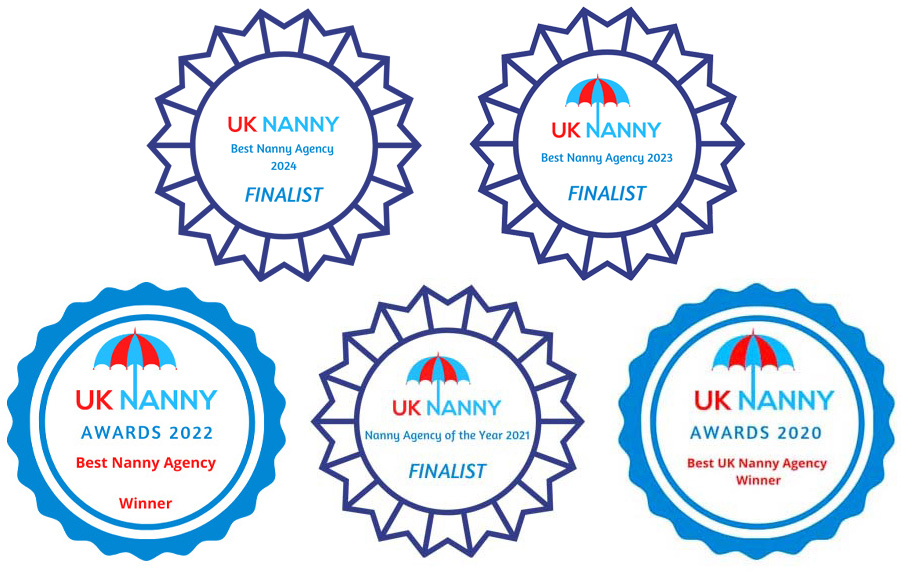Nannies and Ofsted – the pros and cons

When families first set out on their childcare journey and are exploring all the options, they can be overwhelmed and confused by the jargon. I understand, don’t worry! There are nannies, childminders, nurseries, paying net, paying gross, live-in, live-out and then the “regulatory element” of Ofsted. Families read about nurseries’ Ofsted ratings and then sometimes assume that nannies are registered too, but that isn’t necessarily the case.
Nannies have their experience and qualifications and are “good to go”. I hear new nannies asking me whether it’s worth going down the Ofsted registering route and I always paint the full picture, admitting that there are pros and cons.
Before we delve into whether it’s a good idea, let’s briefly recap on Ofsted itself and what nannies have to do to become registered with them.
Ofsted
“Ofsted is the Office for Standards in Education, Children’s Services and Skills. We inspect services providing education and skills for learners of all ages. We also inspect and regulate services that care for children and young people.” The Ofsted website
In short, Ofsted makes sure that services and professionals delivering those services for children and young people are up to a pre-defined standard.
Nannies don’t have to be Ofsted registered, it’s voluntary and there are certain criteria that they need to meet. Nannies need:
• a paediatric first aid certificate
• the Common Core Skills and Knowledge in Childcare certificate
• an up-to-date DBS check
• public liability insurance
Let’s start positively with the benefits of a nanny being Ofsted registered.
Pros
The primary reason for a nanny becoming Ofsted registered is so that the employing family can pay them in childcare vouchers. These are a tax efficient way for parents and carers to pay for child care. However, all the registration requirements above (paediatric and childcare certificates, DBS check and insurance) come at a price, as well as the actual annual Ofsted registration fee; as a result, many families pay for the registration fee viewing it as a relatively small price to pay compared to the tax efficiencies they can gain.
For a nanny, being Ofsted registered means that they must comply with the criteria, updating their certificates, checks and insurance when required and being prepared for short-notice Ofsted visits. Yes, this comes at a cost to them but it also provides prospective families with the reassurance that their child carer has met the Ofsted standards and will continue to do so as long as they’re registered.
These are the positives of a nanny being Ofsted registered so let’s go through some of the drawbacks.
For the family, there aren’t many drawbacks: the cost of the nanny’s Ofsted registration is one but as I said, that should be a cost they’re willing to accept given the subsequent benefits.
It becomes slightly more complicated if a nanny leaves shortly after the family have paid for Ofsted registration and it may be that a clause needs to be written into the contract regarding not leaving within 3/6 months of registration (becoming more complicated if there’s a nanny’s maternity or sick leave to consider too).
In my experience, about 40% of nannies are not Ofsted registered though – let’s remember that it is a voluntary scheme. Nannies see it as an investment of time, money and effort for little gain to them. They need to ensure that their qualifications are current and with that comes the relevant costs all of which could mount up over time.
And then there are the Ofsted visits. By becoming Ofsted registered, nannies are opening themselves up to scrutiny from the regulator (on top of, perhaps, the daily scrutiny of the family!). Ofsted will provide some notice of their intention to visit but not much and the employing family do need to consent to the visit but during those visits, they are likely to inspect the family home for health and safety issues, check the nanny’s paperwork and have a chat about the employment arrangements. This may not sound too onerous but when your primary role is child care, paperwork administration may not be your forte.
These are the positives and negatives to nannies’ Ofsted registration. It is hard to disagree with a system which has children’s safety and well-being at heart but until it becomes mandatory for nannies and other child carers, it’s a tricky one to navigate.
I hope you found this useful. I’d love to read your comments on this and any other blog and don’t forget that if you have any questions, feel free to give me a call on 01732 838417.
Hazel
